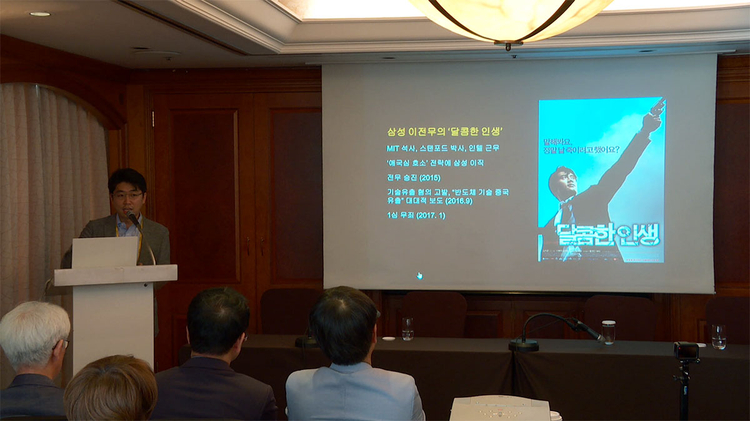
Where Should Korean Investigative Journalism Head to?
2018년 10월 08일 17시 13분
[This article was written by student reporters of IJAsia18.]
Investigative Journalism is crucial to building up and sustaining healthy democracy.
The plenary session of the Uncovering Asia 18 welcomed nearly 500 people from 48 countries. Global Investigative Journalism Network(GIJN), Korea Center for Investigative Journalism(Newstapa), and Konrad Adenauer Stiftung co-hosted the third Asian Investigative Journalism Conference in Seoul, South Korea.
In the words of Sheila Coronel; “It is a fraught and difficult time to be a journalist.” The role of the media in a modern democracy is to have a check on power, but that role is now fraying. Journalists are now regarded as “perpetrators of fake news,” and new landscape of threats to the field, such as propaganda journalism and online harassment, endanger the role of journalists as voices of justice and truth both in the real and virtual worlds. The plenary session aimed to address these “New Threats” to the field of journalism and to incite cross-national discussions about what unites and what divides journalists across asia in regard to the obstacles they face in the wake of their changing social, political, and economic contexts.
The details of these contextual differences were brought out during the discussion. Srinivasan Jain of India’s NDTV characterized India’s predicament by explaining how the wide reach of propaganda news and a “silent bloodless coup taking place in newsroom after newsroom” against free and unbiased media has created an atmosphere of polarization and mistrust in the relationship between journalists and the public.
In contrast to India’s condition, Malaysia’s challenge in the wake of its newborn democracy is to strengthen its independent institutions and liberate the media from political control. Steven Gan from Malaysiakini elucidated how the next step towards strengthening the ability of Malay journalists to be voices of truth was to address both the direct and indirect forms of political oppression. This would include amending laws that prohibit freedom of speech as well as preventing the ability of future governments to “play the media game” by polarizing the nation’s people with too many opposing narratives.
The overarching message of the discussion was to “fight back.” While all acknowledged the noble sentiment of this statement, the primary question remained how?
To begin answering this question, we must understand where the threat is coming from. Maria Ressa from the filipino news network Rappler identified social media and its role in spreading disinformation as a significant threat to unbiased media. In Ressa’s words, social media outlets “are optimized to keep you addicted, to keep you clicking. But they’re not optimized for democracy.”
An important feature of disinformation propagated by social media is a lack of clear accountability. The traditional role of investigative journalism has been to question the practices of governments and those in positions of power and hold them accountable, something the technological age has made increasingly difficult.
A question we should be asking ourselves as journalists, readers, or just agents of society is “How are we a part of the problem?” How do our actions contribute to distorting truth and creating barriers to a healthy democracy?
Facing the New Threats to the integrity of journalism requires building a strong global network. In the words of Zaffar Abbas from the Pakistani newspaper Dawn, “ to regain the space we once held, we will need the support of the international community.” Communication, connection and mutual support and create powerful networks for change. We hope that the GIJN Asia conference 2018 is a space where such global networks can be established and a change can be made.
report: Menita Ranghar, Seoyeon You
뉴스타파는 권력과 자본의 간섭을 받지 않고 진실만을 보도하기 위해, 광고나 협찬 없이 오직 후원회원들의 회비로만 제작됩니다. 월 1만원 후원으로 더 나은 세상을 만들어주세요.